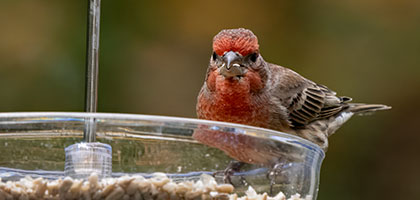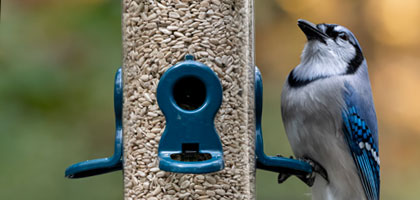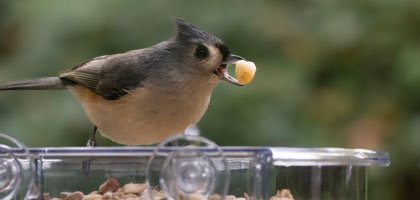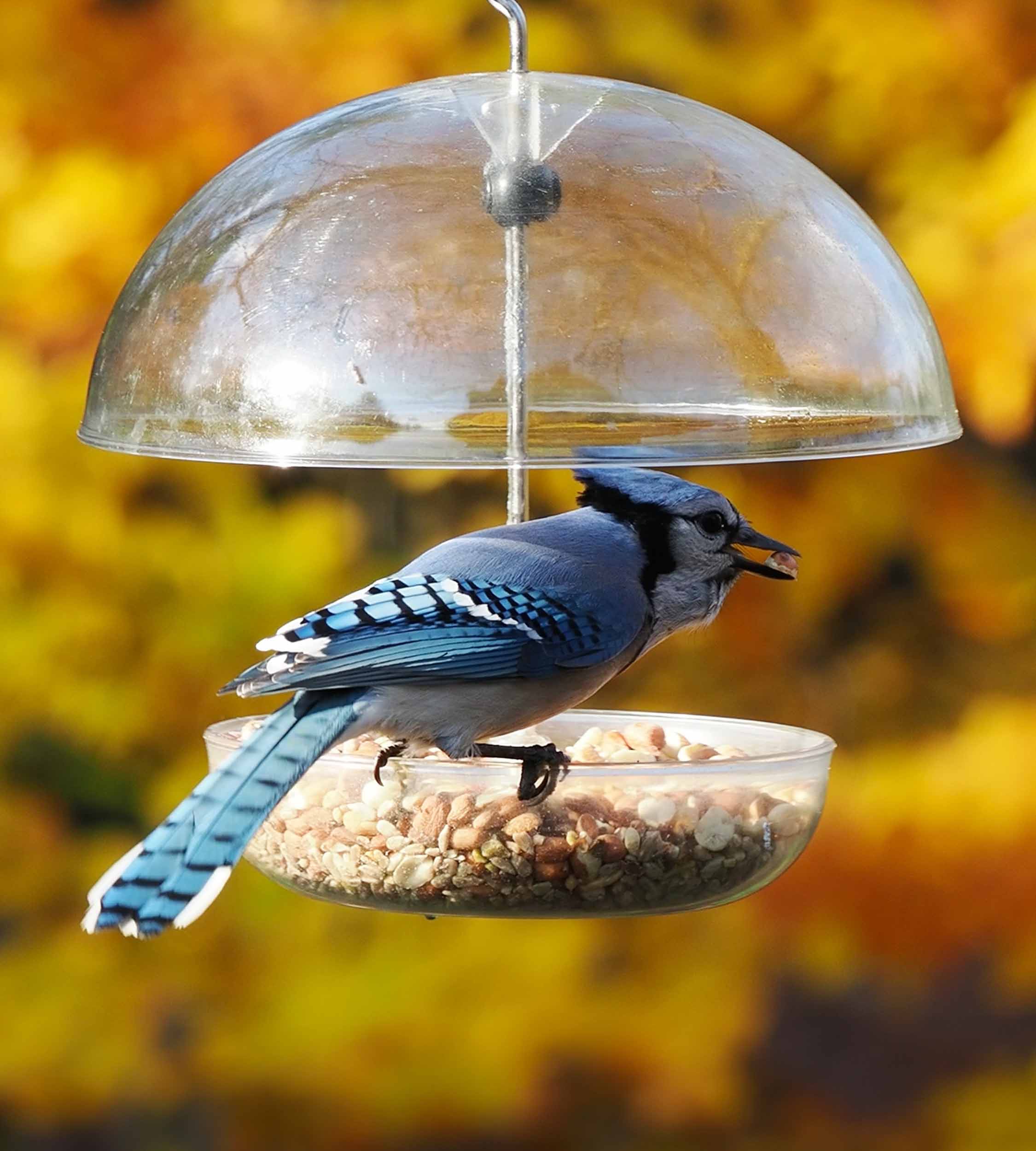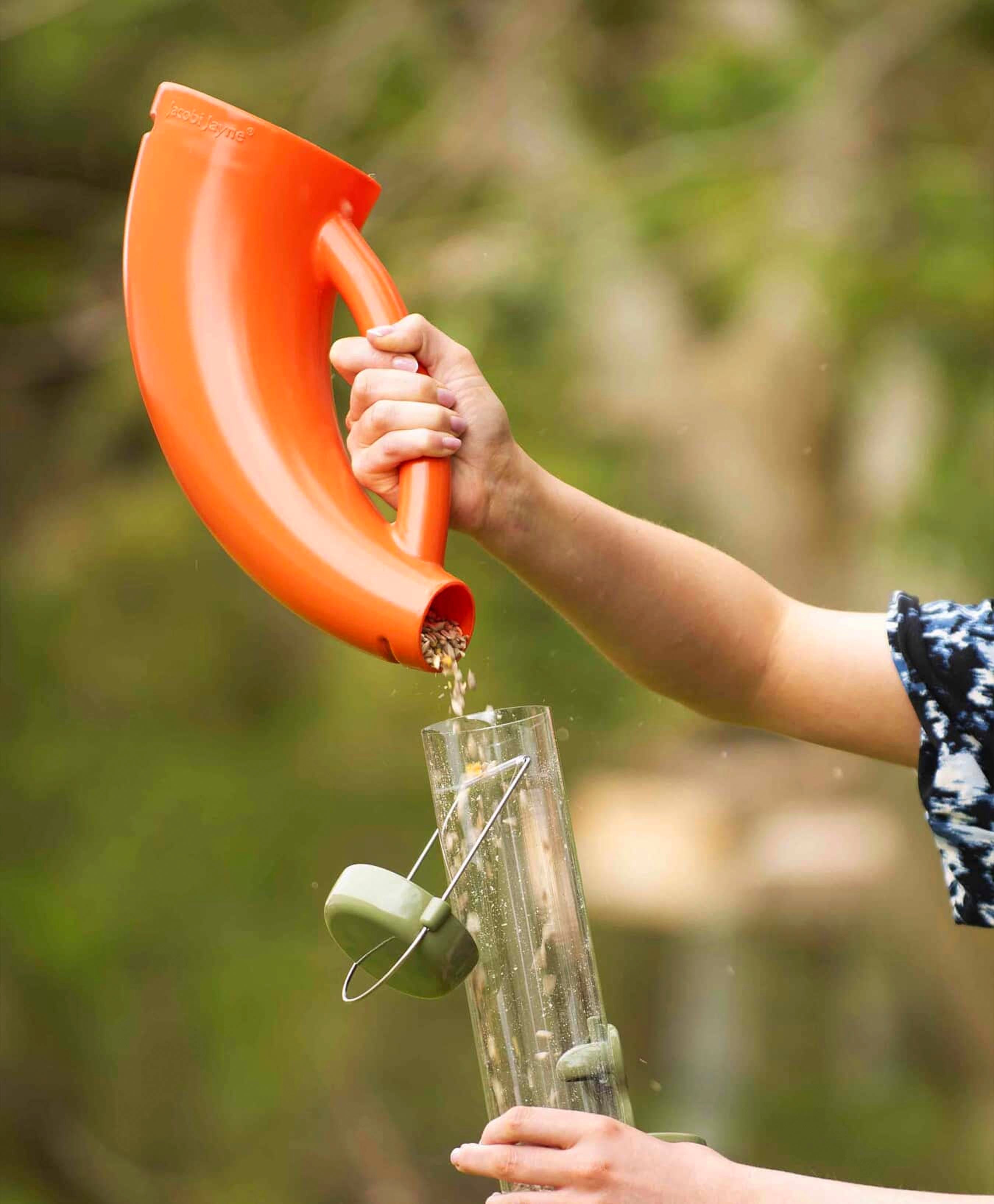Bird feeding is a popular pastime. It brings joy to many and helps support our feathered friends. But what exactly is in bird seed?
The ingredients can vary greatly. They depend on the type of mix and the birds it's designed to attract.
Understanding these ingredients is key. It can help you attract specific bird species and ensure they get the nutrition they need.
In this guide, we'll delve into the world of bird seed. We'll explore common ingredients, their benefits, and how to choose the right mix for your local avian population.
The Basics of Bird Seed Ingredients
Bird seed mixes are more than just filler. They are carefully crafted blends designed to meet birds' dietary needs. This approach helps attract a variety of species to feeders.
Each ingredient serves a purpose. Some offer essential nutrients, while others are meant to attract specific birds. Understanding each component helps in selecting the right mix.
Here's a quick list of some common bird seed ingredients you might encounter:
- Millet
- Sunflower Seeds
- Cracked Corn
- Safflower Seeds
- Nyjer (or Thistle)
- Peanuts
Millet is popular for ground-feeding birds. Sunflower seeds are a top choice because of their high-fat content. Cracked corn attracts larger birds like ducks and pheasants.
Some ingredients aim to deter unwelcome visitors, like safflower seeds, which are less appealing to squirrels. By knowing what's in your bird seed mix, you can provide better food for your feathered guests.
Common Grains and Seeds in Bird Seed Mixes
When selecting bird seed, the variety of grains and seeds plays a crucial role. These ingredients cater to different bird species, ensuring a diverse and lively backyard.
Millet is often included in bird seed mixes. This small grain is perfect for ground-feeding birds. Its nutritional value makes it a staple ingredient.
Sunflower seeds are another popular choice. Known for their high-fat content, they provide essential energy. These seeds appeal to many bird species, making them a versatile option.
Cracked corn is often found in mixes due to its affordability. It attracts larger birds like ducks, geese, and pheasants. Cracked corn serves as a filling treat.
Safflower seeds offer a unique advantage. Their bitter taste deters squirrels while still attracting birds like cardinals. This makes them a favored choice among bird enthusiasts.
Let's not forget specialty seeds like Nyjer and peanuts. These seeds attract specific birds, such as finches and woodpeckers. They add an exciting variety to bird feeding.
Each seed type offers distinct benefits. Understanding these ingredients helps you choose the right bird seed mix. It's all about catering to the feathered visitors you want to attract.
Millet: A Favorite Among Ground-Feeding Birds
Millet is a staple in many bird seed varieties. Its small size makes it easy for ground feeders like sparrows to consume. It's widely appreciated for its nutritional content.
This tiny seed also attracts doves and juncos. Millet is a versatile option that meets the needs of many common backyard species. Its inclusion guarantees a lively ground-feeding scene.
Sunflower Seeds: High-Fat Content for Feathered Friends
Sunflower seeds are a favorite in bird food. Known for their high energy value, they support the needs of active birds. This makes them an appealing choice for many enthusiasts.
Their versatility cannot be overstated. From chickadees to grosbeaks, a wide range of birds love sunflower seeds. Their high-fat content is vital for bird energy needs throughout the year.
Cracked Corn and Safflower: Variety for Different Species
Cracked corn is a cost-effective addition to bird seed mixes. It's especially popular with larger birds like ducks and pheasants. Its size and texture are perfect for bigger beaks.
Safflower seeds, on the other hand, offer a squirrel-proof option. Their bitter taste appeals less to squirrels while attracting cardinals and other feathered visitors. These two seeds offer variety.
Specialty Seeds: Nyjer and Peanuts
Nyjer seed is tiny but mighty. It's a choice pick for finches and other small songbirds. This seed is ideal for hanging feeders that accommodate petite bills.
Peanuts are a protein-packed treat. Shelled or unshelled, they attract jays and woodpeckers. High in protein and fat, peanuts provide essential nutrients for these robust birds.
Nutritional Additions: Suet, Mealworms, and Fruits
Birds often benefit from more than just seeds. Supplementing their diet with suet, mealworms, and fruits provides additional nutrition essential for their health and vitality.
Suet is a crucial energy source, especially in colder months. The high-fat content helps birds maintain body heat. It's a go-to option for woodpeckers and nuthatches.
Mealworms offer a rich protein supplement for insectivorous birds. Robins and bluebirds find them especially enticing. They can be added to a bird seed mix for variety.
Fruits, such as dried berries and raisins, attract fruit-loving birds. Orioles and tanagers are known to enjoy these treats. Including fruits can add color and interest to your bird feeding routine.
Adding these nutritional elements enhances the appeal of any bird seed mix. They support diverse feeding habits and encourage a wider range of species to visit your feeders.
The Importance of Grit and Calcium in Bird Diets
Grit is vital for birds as it aids in the digestion of seeds. Small stones or gravel help grind food in the bird’s gizzard, making digestion efficient.
Calcium supports strong eggshell formation and is crucial during breeding seasons. Including a source of calcium in bird seed mixes ensures birds get the nutrients they need for reproduction and bone health.
Avoiding Harmful Ingredients in Bird Seed
It's crucial to avoid bird seeds with artificial colors or flavors, as these additives can be harmful. They offer no nutritional benefits and can sometimes irritate a bird's digestive system.
Check for any chemical preservatives in bird seed mixes. Opt for natural ingredients to ensure the wellbeing of the birds. The presence of mold or insects in seeds is also a red flag indicating spoilage.
Tailoring Bird Seed to Your Local Avian Population
Different bird species have specific dietary needs. Understanding these can help attract the right birds to your feeders.
Start by observing the types of birds that visit your area. Research their preferences, as diet varies significantly among species.
Create or choose bird seed mixes that cater to your local birds' nutritional needs. For instance, finches love tiny seeds like Nyjer, while jays prefer peanuts.
Here are some tips for selection:
- Identify the birds in your backyard.
- Learn about their dietary preferences.
- Choose seed mixes that match these preferences for higher attraction.
With a bit of research, you can turn your yard into a haven for diverse bird species.
No Waste Options: Shell-less Seeds and Their Benefits
Shell-less bird seed options, like hulled sunflower hearts, offer a tidy feeding solution. They prevent litter under feeders since no shells are discarded.
These seeds are favored by many bird species. Using no waste options can reduce yard cleanup and keep feeding areas neat.
The Impact of Bird Seed Quality on Attracting Birds
The quality of bird seed can greatly influence which birds visit your feeders. High-quality mixes are more appealing to a broader range of species and can increase the diversity in your yard.
Cheaper seeds often contain fillers that many birds ignore. Investing in better seed can result in more frequent visits from various birds. Quality seed ensures a healthy, enjoyable bird-watching experience.
Storing Bird Seed: Tips for Maintaining Freshness and Quality
Proper storage of bird seed is crucial to prevent spoilage and maintain its nutritional value. Store seed in a cool, dry place and use airtight containers to keep pests and moisture away.
Regularly check for mold or bad smells, which can deter birds and harm them if consumed. Keeping feeders clean and only filling them with fresh seed ensures birds have a healthy food source.
Eco-Friendly and Ethical Considerations in Bird Seed Selection
Choosing bird seed responsibly means considering both environmental and ethical factors. Look for seed options that support sustainable farming practices to minimize ecological damage.
Ethical choices also involve selecting non-GMO and organic bird seeds. These are often grown without harmful chemicals, making them safer for birds and the environment.
Here's a quick checklist to help with your selection:
- Opt for organic and non-GMO seeds.
- Support brands with sustainable farming practices.
- Avoid seeds with chemical preservatives.
Don't forget to check packaging options. Recyclable or compostable packaging contributes to reducing waste and promoting sustainability. Eco-conscious decisions in bird feeding support healthy ecosystems for our feathered friends.
Conclusion: Making Informed Choices for Healthy Birds and Happy Watching
Understanding bird seed ingredients empowers you to attract a variety of bird species to your yard. When you know what different birds prefer, you can choose the right mix, enhancing your bird watching experience.
Making eco-friendly and informed seed choices benefits birds and sustains local ecosystems. By selecting the best bird seed mix, you promote bird health and enjoy the simple joy of bird watching.
